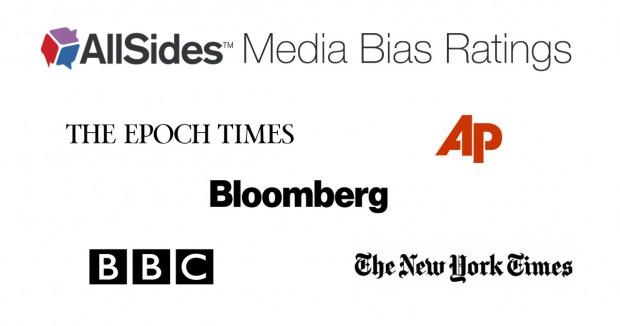In September, we released the findings of our August 2020 Blind Bias Survey, in which more than 2,000 people across the political spectrum rated the media bias of five different news outlets blindly, seeing only their content and story choice but not the name of the news publication. Below are visualizations of the data we collected.
In a Blind Bias Survey, we ask people to self-report their own political bias (left, lean left, center, lean right, or right) and then present them with content from media outlets. We show them numerous front-page headlines and the first few paragraphs from two articles from a given media outlet, stripping them of any identifying information, and ask respondents to rate the outlet’s bias.

